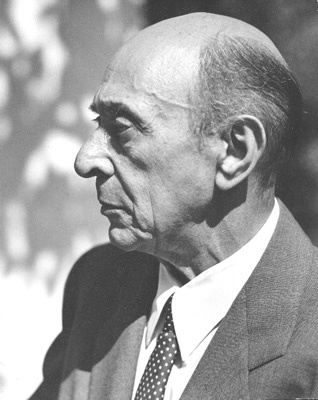The theme of the Bowdoin International Music Festival this year is “Vienna: 150 Years of Musical Glory (1780-1930),” exploring the key role of that city in the development of classical music.
Vienna is a kind of cultural black hole formed by the dying star of the Austro-Hungarian empire, spinning off whole new galaxies — not only in music but also in physics, linguistics, psychology, art, literature, architecture, philosophy and just about anything else that makes life worth living.
At the height of the empire it gave us Haydn, Mozart, Beethoven, Schubert and Brahms, who established a tradition and created a body of work that has remained the standard of classical music until the present day, at least among traditional concertgoers.
As the empire began to dissolve, there also began a rebellion against those very classical forms, which many musicians believed had outlived their usefulness as vehicles to portray more “modern” emotions.
A rising middle class tended to ape aristocratic manners and concerns, music among them, and appreciated hierarchical form. The more democratic or radical, however, like Schoenberg, toyed with the idea that all notes are created equal, and began to explore nontraditional and ethnic music.
Fin de siecle Vienna also spawned a flourishing American cottage industry in schmaltz and waltz, so much so that the image of the city still in most people’s minds is that of gowned ladies (young and not-so-young) gliding along the ballroom floor in the arms of handsome aristocrats, preferably in court uniform.
The brother of one of my piano teachers, visiting Vienna as a GI after World War II, was so disappointed by the reality as compared to the fairy tale that he published a poem about a soldier on leave in Vienna who hires a prostitute merely to waltz with him.
The waltz, in turn, entered classical music as a means to express a particular romantic emotion, or a parody thereof.
Among the Bowdoin Festival’s 80 or so concerts this month, most are devoted to the Viennese classical tradition, with a predominance of Beethoven. A few of the innovators — Schoenberg, Berg and Webern, for example — have been folded in here and there.
There are no Viennese moderns in the Festival Friday series, but there are several in the Wednesday Upbeat! concerts: Schoenberg’s “Verklarte Nacht” this Wednesday, and “Four Pieces for Clarinet and Piano” by Alban Berg and “Four Pieces for Violin and Piano” by Anton Webern on July 27. The Gamper Festival of Contemporary Music (July 28-31) will feature works by Berg, yet to be announced.
On the subject of Vienna, don’t forget the PORTopera Young Artists’ productions of a new work, “Cafe Vienna,” which mingles the city’s romantic image with undertones of Freud and the satirical work of Viennese author and playwright Arthur Schnitzler.
Performances are scheduled for 7:30 p.m. July 10 at The Temple at Old Orchard Beach, and for 7:30 p.m. July 15 at the University of Maine at Farmington, Merrill Hall, Nordica Auditorium.
Christopher Hyde is a writer and musician who lives in Pownal. He can be reached at:
classbeat@netscape.net
Copy the Story Link
Send questions/comments to the editors.



Success. Please wait for the page to reload. If the page does not reload within 5 seconds, please refresh the page.
Enter your email and password to access comments.
Hi, to comment on stories you must . This profile is in addition to your subscription and website login.
Already have a commenting profile? .
Invalid username/password.
Please check your email to confirm and complete your registration.
Only subscribers are eligible to post comments. Please subscribe or login first for digital access. Here’s why.
Use the form below to reset your password. When you've submitted your account email, we will send an email with a reset code.